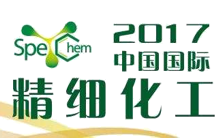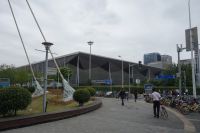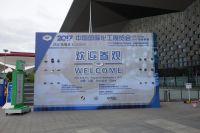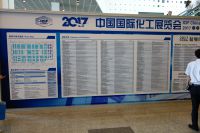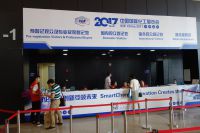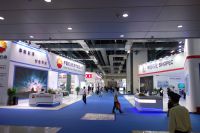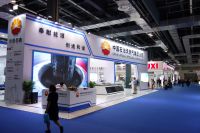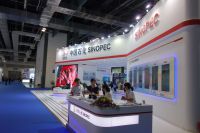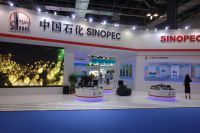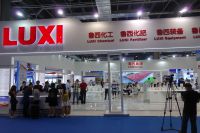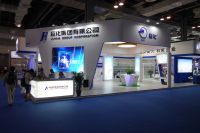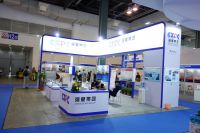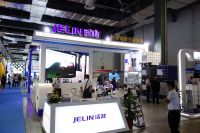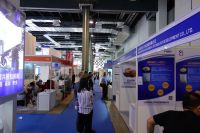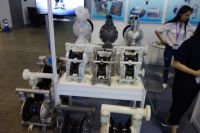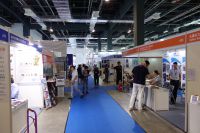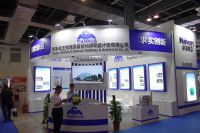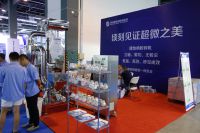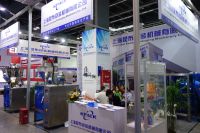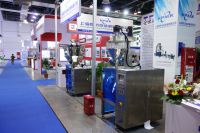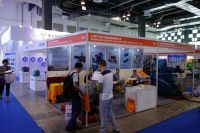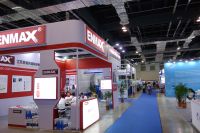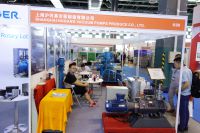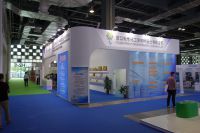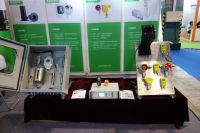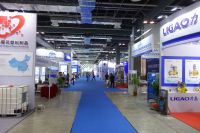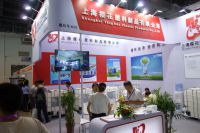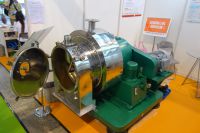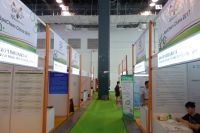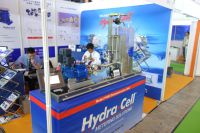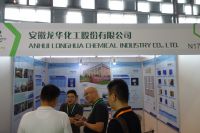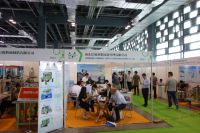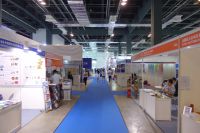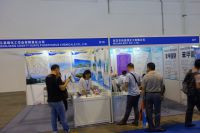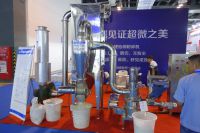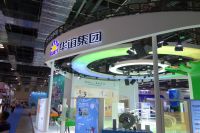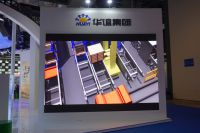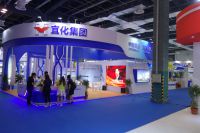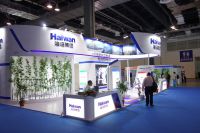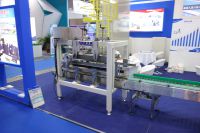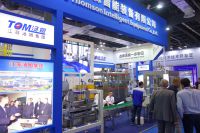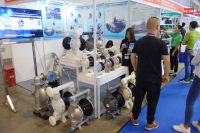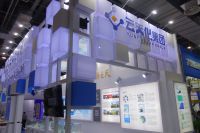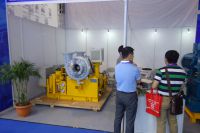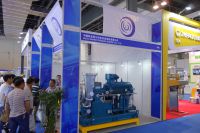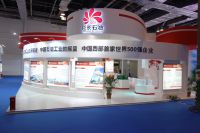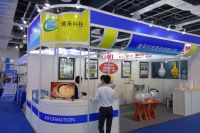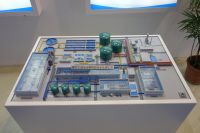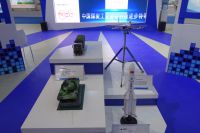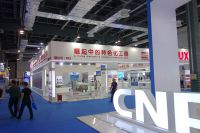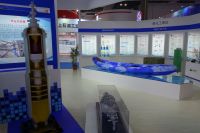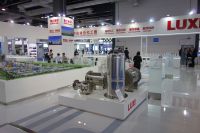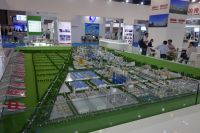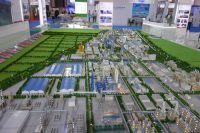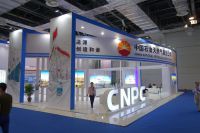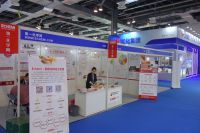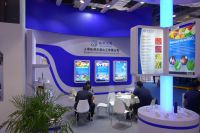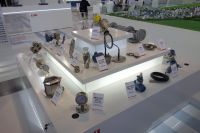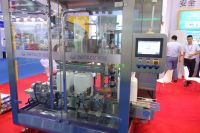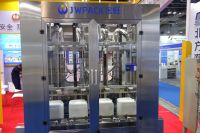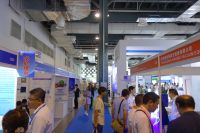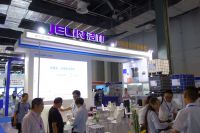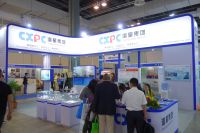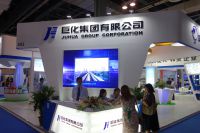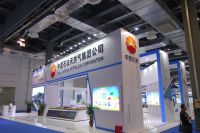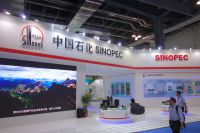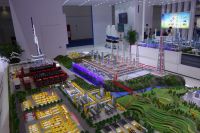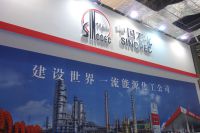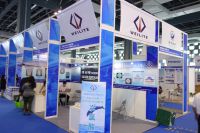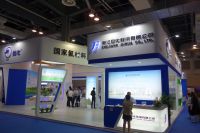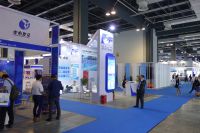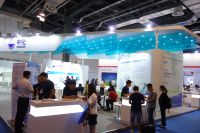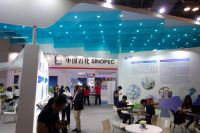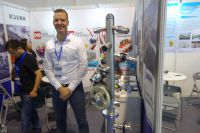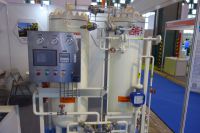Today, I attended the China International Chemical Industry Fair (ICIF China) [中国国际化工展览会] and SpeChem [中国国际精细化工及定制化学品展览会] exhibitions in Shanghai, i.e., trade shows for the chemistry industry. ICIF is a general fair for all types of chemicals and chemistry-equipment, ranging from petroleum to fertilizer and from pumps and valves to packaging and logistics. SpeChem is focused on the special chemicals used in, e.g., the food and beverage, pharmaceutical, agricultural, electronic, water treatment, oilfield, paper, and textile industries. After already attending several logistics-related events this year, such as Intermodal and LogiMAT, I wanted to attend this fair in order to broaden my focus and to see whether IT and operations research have become central products in the chemistry industry.
The exhibition was quite large and a wide variety of products were presented. Manufacturers of organic and inorganic chemicals promoted their products, but also machinery, be it for cleaning water, automatic packaging, or producing chemicals were displayed. Hoses, valves, vessels, canisters and other utilities could be found. As a side node, I was positively surprised to find quite a lot of Anhui-based companies at the exhibition. Still, most interesting for me were producers of automation and control equipment as well as logistics providers. I even had the chance to discuss with a few of them.
The manufacturers of automation equipment for chemistry production currently seem to mainly focus on traditional features, such as fixed control procedures and networking of components, which, well, is their basic business. However, some of them seriously consider adding more intelligence to their products and production processes, be it by enhancing existing products with networked sensors, making their own production "smart," or by contemplating adding intelligent control and planning capabilities to their products. The logistics providers in the chemistry sector will need to rely on manual negotiations in the foreseeable future due to the volatility of the market and ever-changing regulations. Yet, providers for chemical freight tracking software may begin to utilize Big Data approaches to mine and provide useful information for their clients. In summary, at least from the few discussions I had, I think the chemistry industry is not yet widely utilizing the available capabilities of IT and computational intelligence, although several of my interlocutors think that this will take place in the future, will be a necessary development, and/or are seriously planning to move into this direction.
I believe that the chemistry industry could largely profit from a movement similar to Industry 4.0 (may I dare to call it Chemistry 4.0?). Often, they deal with automated processes run by huge machinery. Questions such as the automated configuration of their process parameters and the best scheduling of production tasks and maintenance works arise quite naturally. Also, chemical manufacturers often do not produce based on customer orders but perform stockpiling, which asks for intelligent predictions of future orders. All of the above could be single optimization problems or even combined into a complex integrated optimization task, maybe even involving optimization along the whole supply chain. Of course, to get there means to first invest money into the development of optimization tools, without clearly knowing how much resources or money can be saved or how much the productivity can be increased beforehand. This may be an understandable and large hurdle, nevertheless, I believe that there is a huge potential in this field.
